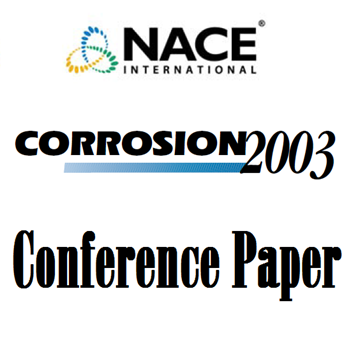Search
03054 COST EFFECTIVE ALTERNATIVES TO TANK LININGS FOR HANDLING CORROSIVE SOLUTIONS
Also Purchased
03055 Application of Thermodynamics to Testing Solvent Resistance of Tank Linings
Product Number:
51300-03055-SG
ISBN:
03055 2003 CP
$20.00
03053 INVESTIGATION AND ANALYSIS OF LINING FAILURE
Product Number:
51300-03053-SG
ISBN:
03053 2003 CP
$20.00
03058 100% Solids Tank Lining Systems Extended Coating Life Equals Dollars Saved
Product Number:
51300-03058-SG
ISBN:
03058 2003 CP
Publication Date:
2003
$20.00




